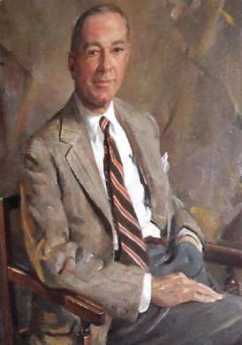Related Topics
Academia in the Philadelphia Region
Higher education is a source of pride, progress, and aggravation.
Historical Motor Excursion North of Philadelphia
The narrow waist of New Jersey was the upper border of William Penn's vast land holdings, and the outer edge of Quaker influence. In 1776-77, Lord Howe made this strip the main highway of his attempt to subjugate the Colonies.
Favorite Reflections
 In no particular order, here are the author's own favorites.
In no particular order, here are the author's own favorites.
Reminiscences
"The past is never dead. It's not even past." -- William Faulkner, Requiem for a Nun
New Jersey (State of)
 The Garden State really has two different states of mind. The motto is Liberty and Prosperity.
The Garden State really has two different states of mind. The motto is Liberty and Prosperity.
Education in Philadelphia
Taxes are too high, but the tax base is too small, so public education is underfunded. Drug use and lack of classroom discipline are also problems. Business and employed persons have fled the city, must be induced to return. Deteriorating education, rising taxes and crime are the immediate problems, but the underlying issue is lack of vigor and engagement by the urban population itself.
Unintended Consequences for Advanced Placement
The Nov. 23, 2004 Wall Street Journal writes that "Elite High Schools Drop AP (Advanced Placement) Courses," thus taking me back to 1943, when I guess I started the idea now being dropped.

|
| Allan Heely |
The then Head Master of The Lawrenceville School, Allan V. Heely, came around to Yale to visit recent graduates in their college freshman year. For secondary school principals that would, in itself, be quite a novelty today. We certainly considered it a novelty to have him actually buy us a beer, since six months earlier we would have been instantly dismissed from school without hope of appeal, just for one provable beer. The alcohol issue to one side, I can see in retrospect that the Head Master made a serious effort to socialize with his senior students, inviting them to tea every afternoon, and coffee after Sunday chapel. What might sound like quaint Victorian ceremonies to an outsider were in fact conscious efforts to create a role model of the mythical Renaissance Man. He and the school chaplain played piano duets and sang witty songs of their own composition. He brought in famous guests from New York and Philadelphia and made them perform as conversationalists. Jacques Barzun and John Erskine were memorable examples. I can even see in retrospect he was displaying his elegant talented wife as an example of the sort of woman we were urged to marry. To visit his graduates in their early formative years in college was entirely in keeping with his concept of education as the basis for character development. There was even a quote from J. P. Morgan: "Brains don't make success, character does."
Well, for all his effort to be friendly, when the Head Master visits you at college it's a little hard to know what to talk about. So, to be helpful, I pointed out that the science courses were not smoothly integrated between secondary school and college. An example was the contrast between my roommate (Peter Max Schultheiss, now Professor Emeritus of Electrical Engineering at Yale) and me. Pete had scored 100 -- no mistakes on any quiz, all year -- in both Chemistry and Physics, whereas I had not taken either course at Lawrenceville at all. Yet, here were both of us in the same Freshman introductory courses at Yale, required before more advanced courses could be taken. Naturally, Pete had an easier time of it, but at the end of the year we were at the same point, and we both felt he had wasted his time taking the same courses twice. Why couldn't Lawrenceville make an arrangement with Yale to waive the requirement for some introductory courses, saving educational time for something else?
Mr. Heely did a lot better than that. At that time, ninety seniors from Lawrenceville went to Princeton every year, a hundred seniors from Andover went to Yale, and about the same number went from Exeter to Harvard. A pleasant dinner was arranged for the three headmasters and the three University presidents, at the conclusion of which the deal was done. Advanced placement was put into effect. As I understand it, the AP system gradually spread, and last year 14,900 secondary schools offered Advanced Placement courses. You could play around with those numbers and conjecture several million college person-years of education were put to better purposes over the last 62 years. It's a really nice feeling to believe that one twenty minute conversation by two eighteen-year-old boys could have such a useful effect.
So, now what's the problem with these elite high schools, that want to drop AP courses? It's hard to speak on their behalf, but I'm in a unique position to know the original idea has twisted out of shape a little. The original purpose was to eliminate mandatory repetition of introductory college courses, but nowadays competition for admission is so ferocious that repetition is considered a very smart thing, to beat the system. It works up and down the educational system, awarding a high score for coasting through a course the second time. Advance placement thus becomes a bribe not to do that, and the power of the bribe is prestige for admission to some higher level. With 15,000 high schools (like Garrison Keillor's Lake Wobegon) claiming to provide superiority, there has to be accreditation, and for that, there has to be a standardized test. Before long, the curriculum is dominated, not by what the teacher thinks is superior, but by what is likely to be on the accreditation test. In effect, we get a French-like system in which the bureaucracy dictates what is best for the Leaders of Tomorrow. That's quite different from the time when outstanding secondary schools produced an unusually good product, and colleges were asked to recognize it. It's hard to say who's been corrupted here; probably everybody, because it's mass-produced accreditation. If you want to evaluate whether to permit more or fewer waivers for a certain school, you need to evaluate earlier waivees when they reach Junior or Senior level in whatever college had previously done some waiving. Only at that longitudinal point in the process is it possible to conclude whether the waiving of repetitious introductory courses had been useful or harmful.
Underneath all of this is the self-fulfilling prophesy that graduation from a handful of elite colleges will assuredly lead to success in life. If what we need are leaders who are vicious competitors, practiced in circumventing hurdles on the way to getting to the top, credentialism is perhaps a regrettable necessity. But if, as Mr. Morgan said, it's character that matters, gaming the system is not a completely ideal way to promote it.
Originally published: Thursday, February 06, 1997; most-recently modified: Wednesday, May 22, 2019
| Posted by: cheapostay | Feb 13, 2012 9:39 AM |
| Posted by: esalerugs | Feb 13, 2012 9:17 AM |